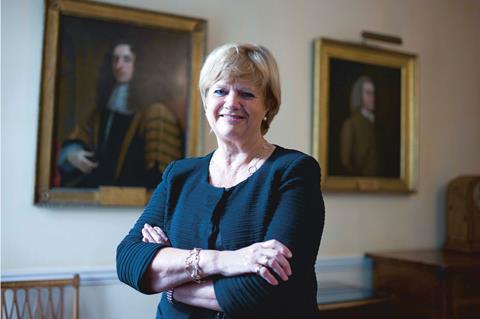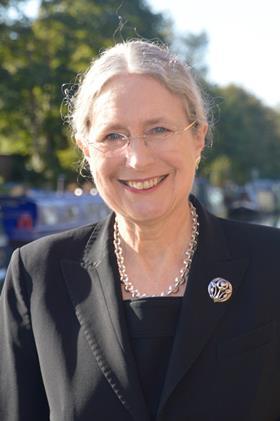A Law Society survey on women in the law suggests that attitudes to gender equality are improving, but unconscious bias is still widely perceived to be a major problem.

Women in law have long been remonstrating about the struggles they face in their careers, highlighting the business case for greater gender diversity and exploring ways this can be achieved. However, the number of women in the senior ranks of the profession, and now the latest gender pay gap figures, indicate slow progress. Yet, thanks in large part to the #MeToo movement that emerged following the Weinstein scandal, the world is finally listening.
What do we shout about first? The Law Society has released the findings of what is believed to be the largest ever international survey conducted on women in the law. The first issue the survey highlights is that men and women differ significantly on how much progress the legal profession has made to promote gender equality. Overall, nearly half of the 8,000 survey respondents think there has been progress over the last five years: 74% of the male respondents reported progress; but only 48% of women.
Unconscious bias is perceived to be the main barrier. One female respondent with 20 years’ post-qualification experience told the survey: ‘The big problem is unconscious bias both at client level – men perceived to be better/more aggressive/better advocates – and internally. This means that men get “better”, more high-profile work which in turn leads to more work (being seen to be doing that case). Too much of this is swept under the carpet of childcare issues. That is actually only a small piece of the jigsaw and used to disguise the main problem, which is bias.’
Other perceived barriers include an unacceptable work/life balance demanded to reach senior levels, and men dominating traditional networks and routes to promotion. One in 10 respondents say unconscious bias training is being carried out consistently in their organisation. Of the 6,533 people who responded to a question about the gender pay gap reporting requirements, 60% are aware of such a gap in their organisation. However only 16% of those report visible steps being taken to close the gap.

Four in 10 respondents say their firms regularly enforce diversity and inclusion training. Nine in 10 respondents think a flexible working culture is critical to improving diversity and half of respondents work in organisations which consistently enforce a flexible working policy. However, 37% work in organisations which have flexible working provisions that are not consistently enforced. One in 10 work in organisations that have no such provisions at all.
A female solicitor with 12 years’ post-qualification experience told the survey: ‘Objections to flexible working are irrational and based wholly on outdated and sexist views. Anybody, in any working pattern, is unavailable from time to time (due to client demands, holiday, other commitments). Flexible working over weekends or during holiday has always been permissible and even encouraged. Clients are billed wherever and whenever the work is done. Male lawyers usually have children, but leave childcare to their female wives/partners, freeing them up to work “unsociable” hours. Failing to offer flexible working, or to cater to those who are working in this way (eg with the timing of networking and other events) forcibly maintains this balance.’
The tide is now changing. Where inequality exists, it is getting harder to hide. Firms with 250 or more employees now have to publish four sets of figures on pay differentials, prompting those affected to disclose what they are doing to close their gender pay gaps.
A lack of gender diversity is bad for business, too. Last year US tech company HP threatened to withhold up to 10% of costs invoiced by law firms if they do not meet minimum diversity requirements. In a letter to law firm partners, Kim Rivera, chief legal officer and general counsel, said HP had invested in driving diversity at all levels ‘and I expect no less from our outside law firm partners. I believe we can all do better’.
One hundred years since the Representation of the People Act allowed women over 30 who met a property qualification to vote, Chancery Lane will, this summer, have another female president. Christina Blacklaws says she will not flinch from tackling inequality; women in leadership will be one of the key themes of her presidency. The Society is also producing a toolkit which, Blacklaws says, ‘will enable and inspire women to go back to their chambers, firms and businesses and do something to make a difference – whether it’s [looking at] equal pay, unconscious bias or the “he for she” agenda to get guys on board, or women’s history. Most of women’s history is undocumented – we do not want that to happen in law’.

Firms’ increasing efforts to show how supportive they are as employers should embolden women to be confident. Solicitor Katharine Mellor, a corporate partner at Slater Heelis in Sale, and the first female president of Manchester Law Society, says: ‘Do not apologise for yourself. Stand up for yourself. At the end of the day, no one owes you a living. You have to earn the client, earn their respect and keep it. Maybe I did have hurdles but I did not see them or consider them to be hurdles.’
Now is also a crucial time to bring men into the conversation. Lady Justice (Heather) Hallett, a Court of Appeal judge, told the launch event of a new Women in Criminal Law network earlier this month: ‘I know had it not been for highly enlightened men back in the 1970s I would never have got to where I am today. As long as men dominate the legal profession, which we all know they still do to a large extent, we’re going to need their support.’
The lack of male attendance at women in law events is sometimes conspicuous. So credit to Dana Denis-Smith, founder of the First 100 Years Project, which celebrates women in the law. Every year the project organises a ‘Spark21 Women in Law’ conference, which includes a panel discussion with male solicitors.
We know that women are on course to outnumber their male colleagues in practice, but the numbers dwindle the higher up the ladder you climb. Matters are not helped, for instance, by government attempts to test extended court hours, which would disproportionately affect parents.
The #MeToo movement has now changed the tone of the debate about women and how they are treated. Whether that will prove to be step change on gender remains to be seen.































5 Readers' comments